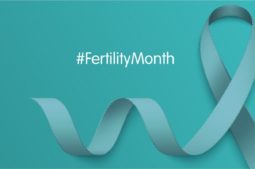

What is the magic moment when a pregnancy truly begins? How do we know that a new life is about to develop and grow? Many of us assume it is the moment when a female egg is met by a male sperm and fertilisation takes place. But this is not quite accurate, nor is… View Article

A study published by the European Society of Human Reproduction (ESHRE) contains the stark statistic that 25 million EU citizens, or one in six couples, experience some form of infertility. The reasons for this are a complex weave of social, economic and medical factors but the fact remains that for each and every individual making… View Article

In Fertility Month, IVI shares the pillars on which its success is based The cumulative rate after three attempts at in vitro fertilization and egg donation is very close to 100%. Ensuring patient safety at every step, achieving the impossible, investing in cutting-edge research and learning to control time in order to have the best… View Article

IVF with donated eggs is the most successful fertility treatment available and has brought the joy of parenthood to many women and couples who would otherwise be facing infertility. It is one of the most altruistic acts that a woman can do to make a huge difference to the life of another woman. How exactly… View Article

The Global Day of Parents, or Parents’ Day as we know it, was introduced by the United Nations to honour parents all over the world for their lifelong commitment to nurturing the relationship and to raising the new generation. “Don’t we already have a Mothers’ Day and a Fathers’ Day?” you may ask. “Do we… View Article

Measuring the temperature before entering the clinic, providing masks and marking safety distances in the clinic are some of the safety measures taken in our assisted reproduction clinics All our laboratories are prepared to work with type 2 infectious agents, such as SARS-CoV-2 so there is no risk in this area. Many of you… View Article

Tubal ligation is intended to be a permanent method of female contraception, so no-one should have the procedure done without very careful consideration. But as we know, none of us have a crystal ball to see into the future. Things can change as a result of life events, new relationships, or simply a change of… View Article

Having made the momentous decision to consult a fertility treatment centre, the first reassurance you need is that the clinic is accredited by the relevant regulating bodies. You will of course also be asking questions like, what is the fertility treatment success rate of my chosen clinic? But this is not the full story. Does… View Article

World Ovarian Cancer Day is the 8th of May. In 2013, a group of ovarian cancer advocacy organizations around the world came together to establish the day with a focus of raising awareness and solidarity in the continuing fight. Raising awareness is vital. Currently, around 300,00 women worldwide are diagnosed every year and overall… View Article

For time immemorial, family groups in one form or another have been the basic building block of social structures. This fact has not changed over the centuries, but the definition of a family certainly has. These days in most of western Europe, standard sociology theory maintains that there are five types of families, being nuclear,… View Article
